What is Silicone Rubber
Silicone rubber is a highly versatile material known for its durability and resilience under a wide range of temperatures and conditions. It is an elastomer composed of silicone—containing silicon together with carbon, hydrogen, and oxygen—alongside various other fillers that enhance its properties. This material is particularly favored for its thermal stability, resistance to ozone and ultraviolet (UV) light, and its inert nature, which makes it suitable for use in food, medical, and other sensitive applications.
Designed to meet the needs of various industries, silicone rubber is utilized by manufacturers, designers, and engineers alike. Whether employed in automotive applications for gaskets and seals, in medical devices as tubing or in cookware as heat-resistant mats, silicone rubber offers a solution that combines flexibility with performance. Its unique properties allow it to maintain its structural integrity in environments where traditional rubber would degrade.
Understanding the principles of how silicone rubber works involves recognizing its polymer structure that allows it to return to its original shape after being stretched or compressed. This elasticity is crucial for applications where a seal or cushioning effect is required. Additionally, silicone rubber can be formulated to conduct electricity or insulate against it, providing further versatility in electrical and electronic applications.
Types of Silicone Rubber
Silicone rubber comes in various forms to cater to different industrial needs. Here are some types:
Liquid Silicone Rubber (LSR): This type has a low viscosity which allows it to be easily molded into complex shapes through injection molding processes. LSR is ideal for producing parts that require precision like medical devices and seals.
High Consistency Rubber (HCR): Also known as high temperature vulcanized (HTV) silicone, HCR has a thicker consistency and is used for extrusion, compression molding, and transfer molding. Its applications include automotive parts and kitchenware due to its high-temperature resistance.
Room Temperature Vulcanizing (RTV) Silicone: RTV silicone cures at room temperature and is often used for mold-making, adhesive-sealing applications, or when the manufacturing process prohibits the use of heat.
Fluorosilicone Rubber: This type offers enhanced chemical resistance, making it suitable for fuel handling systems and chemical processing equipment.
Each type has specific properties that lend themselves well to particular use cases such as sealing in harsh environments or creating detailed molds for artistic purposes.
How to choose Silicone Rubber
Selecting the right silicone rubber for your business needs requires careful consideration of several factors. Firstly, evaluate the application requirements such as temperature resistance, chemical exposure, and mechanical stress. For instance, if you are involved in the automotive industry where materials are exposed to varying temperatures and oils, fluorosilicone may be the best choice due to its chemical resistance properties.
The curing process also plays a crucial role; RTV silicone might be suitable for smaller projects with intricate details where heat cannot be applied. On the other hand, LSR might be more appropriate for mass production through injection molding.
Moreover, consider the material's hardness level which can affect flexibility and durability. A softer silicone may be needed for products requiring greater flexibility while a harder silicone might be more suitable for items needing to maintain their shape under pressure.
Lastly, take into account any additional features like eco-friendliness or transparency based on consumer preferences or industry standards. It's essential to align these characteristics with your clients' demands for performance and compliance.
Best Silicone Rubber on Alibaba.com
Alibaba.com stands as a global marketplace connecting businesses with a comprehensive array of silicone rubber options tailored to meet diverse industrial needs. With over two decades of experience fostering B2B relationships across more than 190 countries, Alibaba.com has established itself as a dependable platform where businesses can source materials with confidence.
The diverse selection available on Alibaba.com includes various types of silicone rubber suited for myriad applications - from food-grade molds to heat-resistant seals. The platform's user-friendly interface simplifies the sourcing process by providing search capabilities that help pinpoint specific product features such as color, processing service, material composition, and more.
By prioritizing transparency in transactions and offering services like Trade Assurance, Alibaba.com ensures that every purchase is protected until delivery, giving businesses peace of mind when ordering in bulk or customizing products according to their unique specifications. Whether you're looking to innovate within your industry or meet the rigorous demands of your clients, Alibaba.com provides access to materials that can help achieve those goals efficiently and effectively.
Common FAQs for Silicone Rubber
What is silicone rubber primarily used for in industrial applications?
Silicone rubber is widely used across various industries for its heat resistance, flexibility, and durability. Common industrial applications include seals, gaskets, tubing, and components for automotive, aerospace, electronics, and healthcare products.
How does the temperature resistance of silicone rubber compare to other elastomers?
Silicone rubber has superior temperature resistance compared to many conventional elastomers. It can typically withstand temperatures from -55°C to +300°C (-67°F to +572°F), making it ideal for applications involving extreme temperatures.
Can silicone rubber be used in food-grade applications?
Yes, specific types of silicone rubber are designed to be food-grade and can safely be used in applications that come into contact with food items. These silicones comply with regulatory standards such as FDA (Food and Drug Administration) or BfR (German Federal Institute for Risk Assessment).
What are the advantages of using liquid silicone rubber (LSR) over high consistency rubber (HCR)?
Liquid Silicone Rubber (LSR) has a lower viscosity which makes it more suitable for injection molding, allowing the creation of intricate parts with precision. It also typically cures faster than High Consistency Rubber (HCR), which can improve production efficiency.
How do I determine the right hardness of silicone rubber for my application?
The appropriate hardness of silicone rubber depends on the application's requirements for flexibility and structural integrity. Softer silicones are better for products that need to bend or flex, while harder silicones are suitable for items that must maintain their shape under stress or pressure.
Is silicone rubber environmentally friendly?
Silicone rubber can be considered more environmentally friendly than some plastics because it is more durable and less likely to leach chemicals. However, it is not biodegradable and recycling options are limited, so its environmental impact should be assessed based on the entire lifecycle.
Can silicone rubber be customized in terms of color and shape?
Yes, silicone rubber can be customized in a wide range of colors and can be molded into various shapes depending on the manufacturer's capabilities. This flexibility allows businesses to tailor products to specific branding or design requirements.
What is the difference between addition cure and condensation cure silicone rubbers?
Addition cure silicone rubbers use a platinum catalyst and cure without producing any by-products, leading to a very precise curing process suitable for environments where contamination must be avoided. Condensation cure silicones typically use a tin catalyst and produce by-products such as alcohol during curing; they are generally more cost-effective and used for less critical applications.
How does UV exposure affect silicone rubber?
Silicone rubber has excellent resistance to UV light, which prevents it from degrading rapidly when exposed to sunlight. This quality makes it ideal for outdoor applications where other materials might fail due to UV damage.
Are there any industries where silicone rubber should not be used?
While silicone rubber is versatile, it may not be suitable for all industries. For example, industries involving certain hydrocarbon fuels or solvents may require other materials due to compatibility issues where silicone could swell or degrade upon contact with these substances.
What features should I look for if I need high-strength silicone rubber?
For high-strength applications, look for silicone rubbers that specify high tensile strength and tear resistance in their product descriptions. These features indicate the material's ability to withstand stretching forces without tearing or breaking.
Can I get a sample of silicone rubber before placing a bulk order?
Many suppliers offer samples of their silicone rubber products so that businesses can test the material before committing to a large order. It's advisable to request samples to ensure the suitability of the material for your specific application.
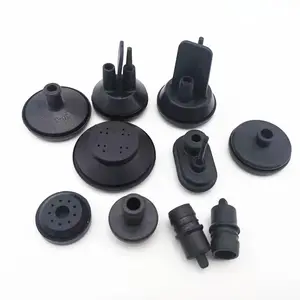





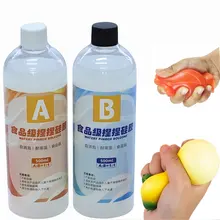

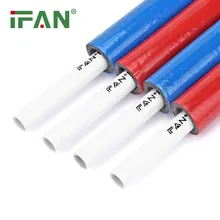




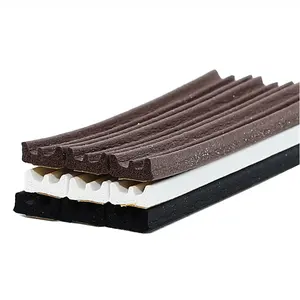
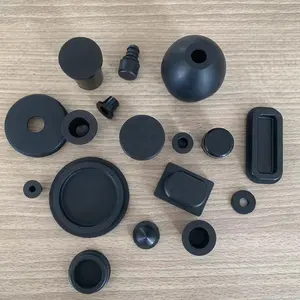




















 浙公网安备 33010002000092号
浙公网安备 33010002000092号 浙B2-20120091-4
浙B2-20120091-4